A Discussion with Jim Griffin and Bill Patry, the Father of Copyright at Google

Recently, at DMW‘s Digital Music East, industry leader Jim Griffin sat down with Bill Patry of Google and valiantly sought to stake out a solution to tangled web that is copyright. What we got, however, was a rich insight to what makes Bill Patry click and how he became known for his $1500 – 6,500 page treatise on copyright law. Known as the Father (or wicked stepfather) of Copyright, depending on where you fall on the issue, Bill Patry was surprisingly vulnerable and honest throughout the interview. He described himself as a “vegetarian, left-wing Jewish guy,” and one could almost think he was nothing but simple attorney, with a passionate love for music, who tripped and fell into a law degree.
Being first and foremost always a journalist, Jim Griffin came to this fireside chat with Patry with his foundation firmly in place, having interviewed many of Patry’s colleagues (and adversaries) over the years. Patry led off assuring Jim, and the crowd of industry heads who filled the auditorium, that he’s only one voice in a team at Google who are focused on the copyright dilemma.
The discussion started off with Patry sharing his start as a music major in college who went on to bring that love for music into his views as a young attorney entering the copyright arena. He added that his hope was, and is, always to protect the rights of all parties in music – from creation to production to distribution.
This love for music showed time and time again through the interview, as Patry highlighted snapshots of his life and career by quoting obscure songs (for instance, “Drop Kick Me Jesus,” which poetically showcased his time in Texas). As an aside, to evidence what an offbeat guy Patry is, he collects the mouthpieces of famous clarinet players.
He went on to discuss his base clarinet and his fierce loyalty to obscure base clarinetists, like Squonk. He spoke eloquently about the struggles of passionate, obscure musicians (like clarinetists) who will simply never be signed. He asked the crowd, rhetorically, “How do they make a living?”
Jim Griffin, who is arguably one of the most learned and nicest people in the entire industry, led the conversation back to Patry’s early days in law, asking how a music major ends up running copyright at one of the largest companies in the world. Patry shared that he won an ASCAP contest writing about copyright (partly because he was the only one in that particular category). His paper, “Copyright and Community Property,” won the contest, and the Journal of Copyright Society published it later that year. Thus began the long, winding road to Google.
At the end of the interview, Jim Griffin smiled and asked, “So then what was the linchpin that brought you to Google?” Patry laughed in response, shrugging, “I was in private practice and sucked at it.”
While I wish they had covered more of where copyright is headed over the next decade, entering what will no doubt be Web 4.0, 5.0, etc., this was a chance to see more of the person who intends to solve a copyright issue that as of now, pits publishers, creators and consumers against one another at every turn.
Final thought, Jim Griffin’s quote from Ben Sheffner (of the MPAA), often an opponent to Patry in the copyright debate, is worth noting: “About Bill Patry: People on my side on today’s copyright debates often see our opponents as head-in-the-cloud cyber Utopians… Unfortunately for us, we can’t dismiss Bill Patry, one of our worthiest opponents, that easily… While we in the entertainment industry often bristle at his conclusions, we frequently consult his masterful treatise… we respect him and are glad to have his voice in the debate.”
Kelli Richards
President and CEO
The All Access Group, LLC



